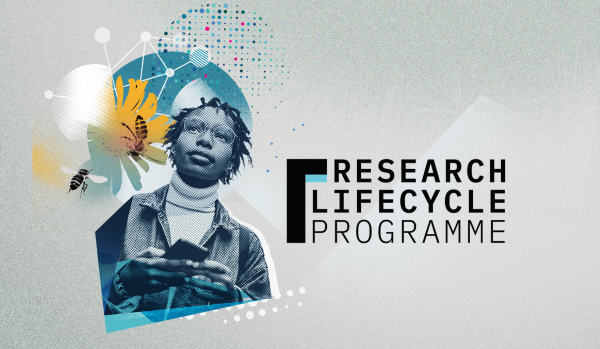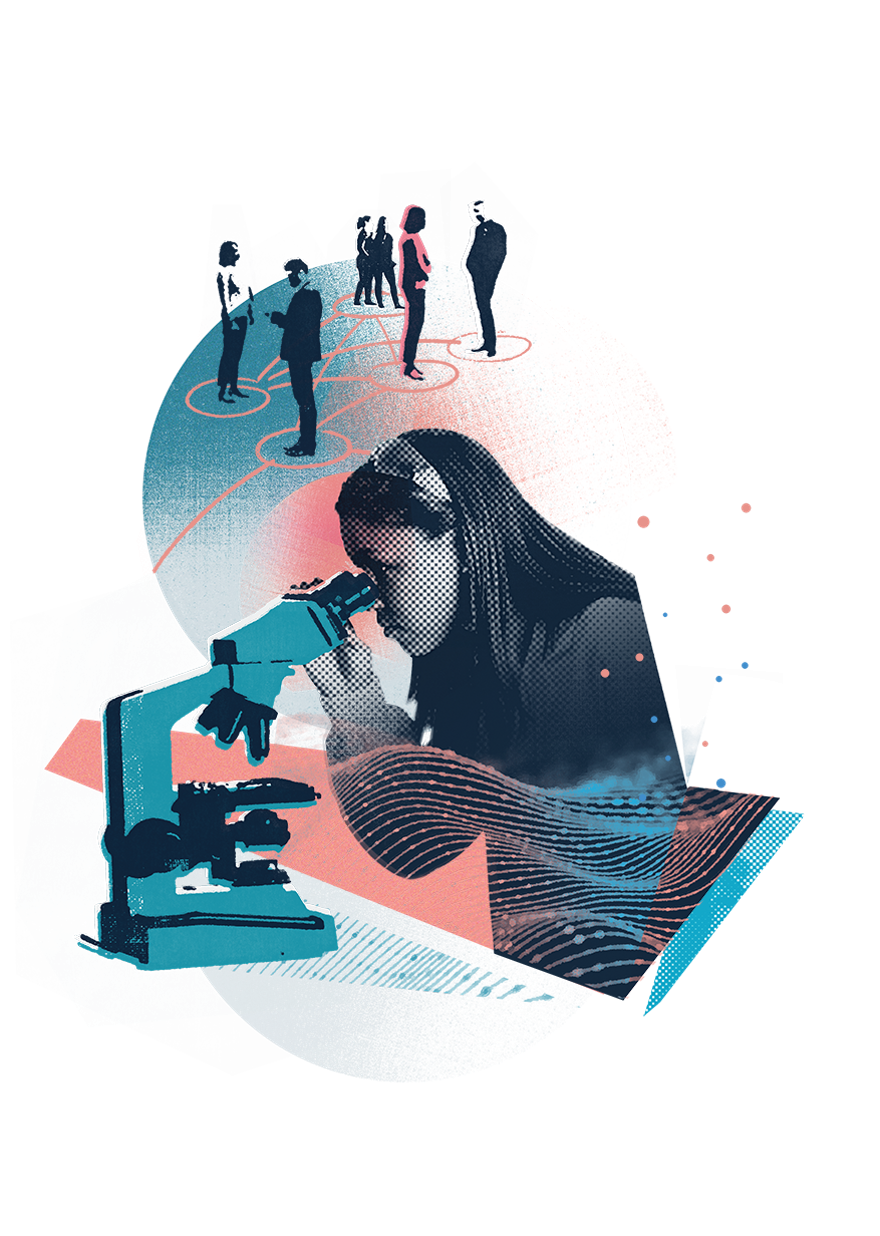
RLP focus areas for 2020/21 academic year
The Research Lifecycle Programme (RLP) is a series of investments of over £15 million. The overarching goal of the programme is to uplift research support in the University, to help researchers focus more on their research and remove administrative and technological barriers from their way.
The RLP, which is about to begin year 3 of its 5 year journey, focuses on three areas of work:
- Research information – How researchers find and manage information
- Research processes – How we enable better research support at The University of Manchester
- e-Research infrastructure – A combination of digitally-based technology and the people and organisational structures needed to support modern, internationally leading, collaborative research.
In our last programme update in February, we communicated our focus areas for the rest of the academic year. However, due to COVID-19, a number of projects in the RLP were temporarily paused.
We recently submitted our business case plans to the Strategic Change Sub Committee (SCSC) to gain approval to carry out the next stage of work in the 2020/21 academic year and we are pleased to announce that the SCSC approved the full business case.
Our business case detailed the next stage of work for 11 of our projects. Read on to learn what each of these projects aims to achieve in the next academic year.
Research information projects
Facilitate research networking and collaboration (Project E)
The overall aim of the networking and collaboration project is to enable better, higher impact research by providing the research community with tools and ways to collaborate and network effectively, for both researchers and PS staff.
The project held a number of workshops over the last few months and the project team will now focus on exploring how best to meet them, how best to implement tools that have been rolled out and how to share and promote best practice.
Develop a service to manage restricted data (Project S)
The purpose of this project is to develop a service that will support researchers at The University of Manchester in managing access to, and use of, highly restricted data from a diverse range of sources (eg Office of National Statistics, NHS Digital, government organisations, commercial partners etc.). The University needs to ensure compliance with GDPR, Export Control and other legal and governance frameworks at a time when demand for research that utilises sensitive data is growing.
The focus of the project is to establish a highly restricted data service by January 2021 for researchers use.
Improve access, export and preservation of data (Project U)
The primary objectives for Project U in 2020/21 are to:
- Work with the research community to ensure their views, needs and funder obligations are captured, understood and reflected in the ongoing development of Research Data Management (RDM) services
- Initiate work towards establishing a RDM centre of excellence at the University
- Launch the new research data repository, Figshare, to support and enhance research at the University
- Improve visibility of data and research outputs created by UoM especially for subjects lacking external repositories.
Manchester Digital Collections (Project V)
The Manchester Digital Collections was launched at the start of 2020, following the University’s need for a world-class viewer to enable researchers across a wide range of disciplines to work with digital images.
In 2020/21 the Manchester Digital Collections project will:
- Add further content to the Digital Collections
- Develop and improve functionalities in collaboration with University of Cambridge and new partner organisations
- Plan the sustainability of the Manchester Digital Collections
Survey tools (Project Y)
Survey tools are an essential part of collecting information for research. Out of 27 survey tools used across the UoM by academics, two have basic support; Lime survey and Select Survey. From evidence collected it is apparent that the supported tools do not fulfil user requirements due to difficulty in use and unwieldy design. As a result, a plethora of survey tools are used across the University and most do not adhere to UoM’s information governance policies.
The aim of this project is to replace, and decommission, the fragmented survey tools offering at the University with two best of breed tools. A world leading tool recommended by Gartner, QualtricsXM and a specialist FMBH researchers tool of choice, REDCap.
Research processes projects
Enhancing support for research: End-to-end processes (Project A)
As there are many moving parts in this area of work, the project will focus in the ear on delivery of projects that are defined and inflight. Scoping of change will be halted for now.
Enhancing Capabilities across Professional Services for Research (Project B)
This project aims to evolve Professional Services for Research to deliver improved clarity of roles and responsibilities, with greater understanding of staff contribution to research and clear visibility of their career paths and opportunities for progression.
Research support interface, reporting and communications (Project C)
This project aims to provide the most effective methods for research staff, and Professional Services staff supporting research, to access all relevant systems and services applicable to research. This is especially necessary now with the disruption brought on by COVID-19. We aim to provide a way of directing users to the most appropriate services and systems in a way which reflects their typical user needs and journeys.
The scope of this projects work this year is to:
- Engage with the research community, focusing on detailed gathering and collecting information to map people, processes and systems applicable to research.
- Create a toolkit solution signposting and mapping the stages of interacting with different systems and processes across the research lifecycle.
Implement a costings approach and tool to model grants (Project D)
The current costing tool and approach to costing research projects is not compatible with the ambitions of the University to grow research income and become a top 25 global institution.
In 2020/21 the project team will be focusing on:
- Launching the research costing tool
- Commissioning the new tool
- Decommission the old pFACT tool
e-Research infrastructure projects
Incrementally build compute capacity and provide orchestration (Project M&K)
The aim of this project is to expand computational capacity and resources to meet the current growing demand and to be competitive with other Russell Group institutions. This means investing money every year in compute resources such as the University’s High Performance Computing, Graphic Processing Units and Virtual Machines.
The investment for the 20/21 academic year will comprise of:
- On-site hardware for provision of 24/7/365 batch/queue based, intensive, computational resources
- Commercial cloud-based resources for easy to use, interactive, computational work
Research Technologies Innovation Communities (Project Q)
The purpose of the Innovation Communities (IC) project is to build communities of practice around key digital research technologies, focusing particularly on new technologies and/or where expertise is fragmented across the University. The focus of the projects work this year is to carry on with the meetings and events held last year and to work closely with the Digital Futures programme to enrich the existing cross-cutting themes.
High Performance Computing (HPC) improvements (Project Z)
HPC is a key part of research from across the University. In 2020/21, this project will continue to support:
- The operation of a conventional on-campus HPC cluster to meet the needs of researchers
- The Manchester contribution to the N8 Centre of Excellence in Computationally Intensive Research (N8 CIR)
- The Manchester contribution to the new N8 specialist high capability GPU HPC based at Durham
The RLP teams look forward to collaborating with the research community on these projects, and hearing your feedback and ideas through our engagement opportunities.
You can sign up to receive the RLP’s monthly newsletter to your inbox to keep up to date with progress on our projects and opportunities to get involved.














0 Comments